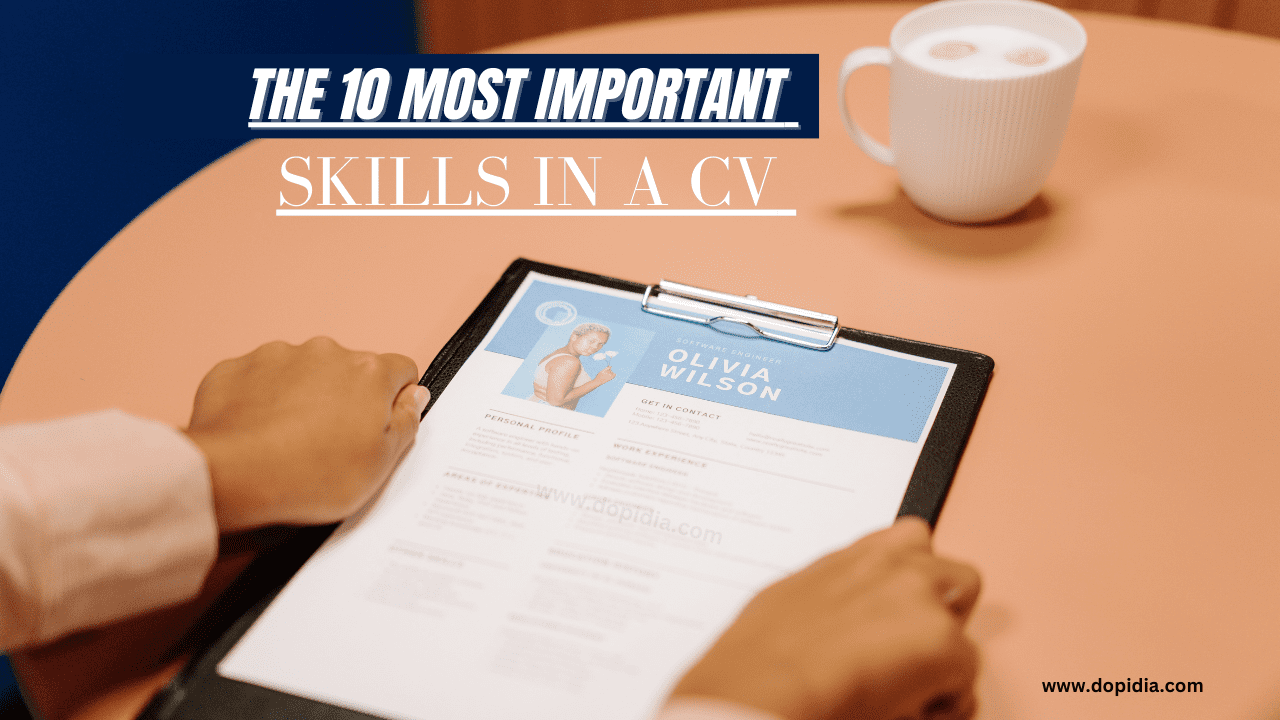What should a CV contain?
What should a CV contain? The short answer is that a CV is a written summary of your education, your academic credentials and your professional experience and skills, with the aim of giving a prospective employer a quick summary of you when applying for a job. You can read the long answer in this article.
What is a CV?
A CV is a compilation that gives the prospective employer a brief summary of different candidates for a job, and it is therefore important that it is easy to understand and contains relevant information. It is also important that the CV follows a specific pattern in terms of content so that it is easy for the recruiter to compare the merits of different candidates.
The CV is a written compilation of education and work experience, but can also tell about association activities, publications, membership in trade associations, certifications and other things that may be relevant to a prospective employer.
It is in a CV that you get the opportunity to show off your knowledge and skills, so it is a very important part of your efforts to get a first job or take the next career step.
Be honest and thorough when writing your CV and remember that many of the details you provide can actually be checked. It is therefore not the time to provide incorrect information.
Make sure your CV looks good and is easy to read. When you feel ready, read it through, first once and then again. And don’t forget to do a spell check!
A little bonus: CV is an abbreviation of the Latin curriculum vitae , which means “course of life”, i.e. what you have managed to do so far during your life.
What should a CV contain?
Your CV should contain specific information about your background and be tailored to the job you are applying for, but there are a number of things you can do to ensure that your CV is effectively designed. Most CVs contain the following information:
- Contact details
- Education/academic qualifications
- Work experience
- Qualifications and competences
- rewards and prizes
- Publications
- Membership in industry organizations and/or associations
- Scholarships and research grants
- Licenses and certifications
- Mission of trust
- Personal information and interests
In addition to that, you can also list some other merits you have had in the past. What it might be depends somewhat on what is in the job advertisement, read it and be a little creative and you will surely find something extra that you can include in your CV.
Contact details
You write your contact details at the top of the document so that it is clear to the recruiter how they can reach you. Here you write:
- Full name
- Phone number
- Email address
When it comes to phone numbers and e-mail addresses, you should use your private information, not contact information for the company you work for.
If you want, you can include your postal address, but what used to be a matter of course is no longer so – most people communicate digitally.
Here you can also write the address of your website (if it is relevant to the job you are applying for) or your LinkedIn profile.
Education/Academic Qualifications
Here you list your education in reverse chronological order, i.e. what you did most recently first. For example, it could be a doctoral degree, master’s degree or upper secondary education. You do not have to include all educations, but those that are relevant to the job you are applying for are sufficient. It is common to state the dates of the courses.
Work Experience
Here you compile your work experience. State company or organization, job title and period of employment. Briefly describe your duties. You should not include addresses or contact details of companies, references or people. You do not need to include shorter employments or irrelevant work experience. The latter does not apply if you are new to the job market, as you actually want to show that you have experience even though you haven’t worked that long.
Related Topics:
Qualifications and Competences
This part should describe your personal qualities, your experiences from previous employment and the skills (apart from education) that are important for the job. Which qualifications and competences you focus on obviously depends on who you are as a person and what experiences you have.
Describe the qualifications and competences and feel free to read through the job advertisement once more to check what the employer is asking for. Focus on qualities that match, but be honest. Some examples of common skills that employers demand are:
- Customer service experience
- Social skills
- Leadership skills
- Organizational skills
- Problem solving oriented
- Computer skills and/or knowledge of a specific software
- Knowledge of foreign languages
A distinction is often made between soft and hard skills. By soft you mean skills that can be useful in any job, they can be described as, for example, “good at collaborating” or “having a lot of balls in the air”. From the list above, we can take examples such as:
- Social skills
- Leadership skills
- Organizational skills
Hard competences mean competences that are specific to the professional role. From the list of competencies we have:
- Computer skills and/or knowledge of a specific software
- Knowledge of foreign languages
The licenses and certifications we list later in the article also count as hard skills. Here you will find an article worth reading about computer skills in CVs.
Rewards and Prizes
Here you can state any awards and prizes you have received in your professional role. Enter name, time and who gave them out. If you work in advertising, you might want your new employer to know that you have won a Golden Egg.
Publications
Here you state any publications. Include relevant citations in reports, studies, books or other publications relevant to your professional background. For publications, include the author, title and publication date.
Membership In Industry Organizations And/or Associations
Here you state membership in trade associations or other relevant associations. Include name and date of active membership. Stating membership in trade associations is self-evident, but also bear in mind that membership in associations due to a more personal interest may be interesting to a potential employer. If you are looking for a job in, for example, a sports shop, it is relevant that you are active in the local climbing club.
Scholarships and Research Grants
Here you state any scholarships you have received that are relevant to the job you are applying for and the research scholarships you have been awarded to finance your higher studies.
Licenses and Certifications
Here you state which licenses and certifications you have, for example environmental certifications, ID06 identification or training certificates for various vehicles, such as forklifts or wheel loaders.
Some professions require you to have a license to be active in the profession at all – a couple of examples are broker and veterinarian. In order to work as a lawyer, you must be a member of the bar association.
In addition, there is something known as credentialing professions, which means that a person practicing the profession is subject to the Health and Medical Care Act and is under the supervision of the National Board of Health and Welfare. Examples of credentialed professions are pharmacist, doctor, dentist and dietician.
Mission of Trust
Here you can state whether you have or have had positions of trust that are relevant to the job you are applying for. For example, you may have been chairman of your condominium association, treasurer of the dog club or politically active in your municipality. Include what you think is relevant to your new employer.
Personal Information And Interests
If you are new to the job market, you can be a little more personal because you don’t have much work experience. You can include information if it presents you as interesting to the employer and has given you experience that can be useful. If this is not the first job you are applying for, personal information can in some cases be perceived as far too private.
Should I Include References In My CV?
An important aspect of any communication with potential employers is that you are unique and have something special to offer the company. Then you must also show that the company you want to work for is special to you. For that reason, you should always adapt your CV to the job you are applying for and in all situations avoid what could be perceived as mass mailings. For the same reason, you should also choose references that are suitable for the job you are applying for. Therefore, if it can be avoided, do not send the same references to all potential employers.
Also think about your referees. If you have their contact details in your CV, they must always be prepared for someone to contact them.
For these reasons, we recommend that you write in your CV that you can provide references on request. You then get control over who you leave as referees and can warn them in advance. You also show the recruiter that you actually have references, which he can’t be sure of if you don’t state it.
Reading Tips
In this article, we have taken inspiration from previous articles published on Indeed and if you want to read more, you can find them here: What is a CV? Definition and examples and The 10 most important skills in a CV (with examples) .
Reminder
Finally, we want to repeat something we wrote earlier in the article because it is so important: “Make sure your CV looks nice and is easy to read. When you feel ready, read it through, first once and then again. And don’t forget to do a spell check!”





Nice blog here Also your site loads up very fast What host are you using Can I get your affiliate link to your host I wish my site loaded up as quickly as yours lol